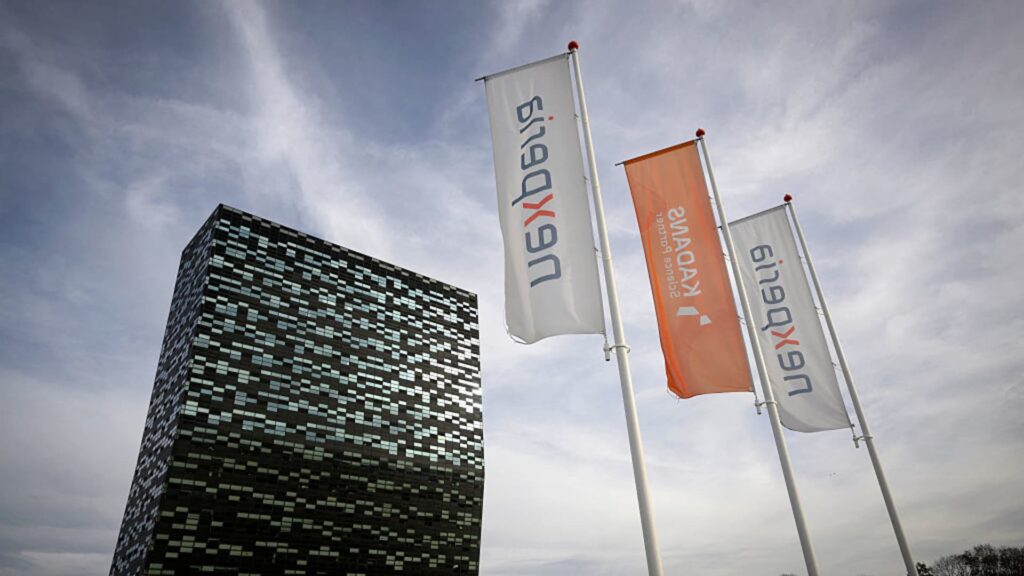This photograph shows a general view of Nexperia headquarters in Nijmegen on November 6, 2025.
John Thys | Afp | Getty Images
Dutch chipmaker Nexperia has publicly called on its China unit to help restore supply chain operations, warning in an open letter that customers across industries are reporting “imminent production outages.”
Nexperia’s Dutch unit said Thursday that its open letter followed “repeated attempts to establish direct communication through conventional channels” but did not have “any meaningful response.”
The letter marks the latest twist in a long-running saga that has threatened global automotive supply chains and stoked a bitter battle between Amsterdam and Beijing over technology transfer.
“We welcomed the Chinese authorities’ commitment to facilitate the resumption of exports from Nexperia’s Chinese facility and that of our subcontractors, enabling the continued flow of our products to global markets,” Nexperia’s Dutch unit said in the letter.
“Nevertheless, customers across industries are still reporting imminent production stoppages. This situation cannot persist,” they added. The group called on the leadership of Nexperia’s entities in China to take steps to restore the established supply flows without delay.
Chinese company Wingtech, which owns Netherlands-based Nexperia, did not immediately respond to a request for comment from CNBC on Friday morning.
In this photo illustration, the logo of semiconductor manufacturer Nexperia is displayed on a screen.
Vcg | Visual China Group | Getty Images
Nexperia manufactures billions of so-called foundation chips — transistors, diodes and power management components — that are produced in Europe, assembled and tested in China, and then re-exported to customers in Europe and elsewhere.
The chips are relatively low-tech and inexpensive but are needed in almost every device that uses electricity. In cars, those chips are used to connect the battery to motors, for lights and sensors, for braking systems, airbag controllers, entertainment systems and electric windows.
How did we get here?
The situation began in September, when the Dutch government invoked a Cold War-era law to effectively take control of Nexperia. The highly unusual move was reportedly made after the U.S. raised security concerns.
Beijing responded by moving to block its products from leaving China, which, in turn, raised the alarm among global automakers as they faced shortages of the chipmaker’s components.
In an apparent reprieve last week, however, the Dutch government said it had suspended its state intervention at Nexperia following talks with Chinese authorities. It was thought at the time that this could bring an end to the dispute and pave the way for a restoration of normal supply chains.
Rico Luman, senior sector economist for transport and logistics at Dutch bank ING, said it remains unclear how long the situation will last.
“The imposed measures to seize the Dutch Nexperia subsidiary have been lifted, but there are still talks ongoing about restoring the corporate structure and relation with parent company Wingtech,” Luman told CNBC by email.
“It’s not only about supplies of finished chips, it’s also about wafer supplies from Europe to the Chinese entity,” Luman said, adding that companies including Japan’s Nissan and German auto supplier Bosch are among the firms to have warned about looming shortages.
Nissan signage at a dealership in Richmond, California, US, on Friday, June 21, 2024.
Bloomberg | Bloomberg | Getty Images
A spokesperson for the German Association of the Automotive Industry (VDA), which represents Volkswagen, Mercedes-Benz Group and BMW among hundreds of others, warned of elevated risks to supply, “particularly for the first quarter” of 2026.
“In recent weeks, the German automotive industry has largely been able to keep production stable through intensive efforts,” a VDA spokesperson told CNBC by email.
“However, the disruptions in the supply chain for Nexperia parts caused by political intervention have not been fundamentally resolved. Component availability remains uncertain,” they added.
ING’s Luman said the Nexperia situation is somewhat comparable to China’s rare earth export controls.
“The Chinese position appears strong again as European manufacturers are dependent on the supplies. And comparable to the rare earths, it’s not fully transparent which buyer is able to qualify for which chip supplies,” Luman said.
— CNBC’s Annika Kim Constantino contributed to this report.
https://www.cnbc.com/2025/11/28/nexperia-crisis-dutch-chipmaker-issues-urgent-plea-to-its-china-unit.html


